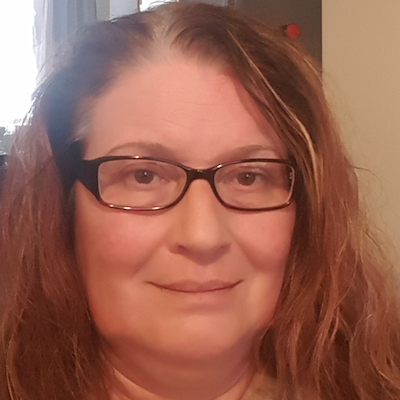Undergraduate NMP
Readiness to Prescribe
The Nursing and Midwifery Council (NMC), the professional body for U.K. registered nurses, midwives and nursing associates has stipulated that future nurses should be ‘prescriber ready’, in a move to ensure the nursing workforce can prescribe medicines soon after registration.
Education providers now need to prepare nurses with sufficient knowledge and skills to enter an NMC approved non-medical prescribing programme from the point of registration.
To enable early access to prescribing programmes after registration, more knowledge on prescribing practice, pharmacokinetics, pharmacology and whole systems assessment is now included within the standards of proficiency.
NMC Standards of Proficiency for Registered Nurses
Readiness to prescribe resource
A team of multi-professional experts and prescribers from across five universities has developed a ‘Readiness to Prescribe’ resource that will fulfil this requirement. Much thought has been put into what this actually means and what ‘readiness to prescribe’ should actually look like. The objective being to provide students with fundamental prescribing knowledge.
The online platform is based on award winning content from our established NMP resource, which has been used for over 7 years by Universities all over England to support the delivery of the NMP qualification.
Designed for both MSc students and Undergraduate nursing, the ‘Readiness to Prescribe’ resource takes a progressive approach to building knowledge and understanding. It is broken into three different parts, starting with baseline knowledge and gradually building to help develop confidence.
Extremely user friendly, the platform enables the student to track their progress through the resource and has a range of professional videos as well as theoretical content. With a percentage completion bar the student can easily identify sections they have completed and quizzes they have undertaken.
Features include:
- Students being able to work at their own pace, monitor and track their progress
- Quizzes at the end of each section: For example in the Pharmacology module there is a quiz at the end of each section. Basic Pharmacology – an Introduction, Pharmacodynamics and Pharmacokinetics.
- Completion receipts from each section so that students can evidence completion – used for pre class learning or portfolio building.
- Tutor overview with downloadable report so that student progress can be tracked and monitored.
- Your university branding and colours.
This is an expertly put together resource, developed by NMP Programme Leads, Pharmacists, Mental Health, Child and Adult Nurses from both MSc and Undergraduate courses. This will save your academic team a significant amount of preparation and planning.You can be confident that you are meeting this new requirement as well as providing an added positive experience for your students.
The Health VLE has been a really useful resource for our mental health nursing students, both in terms of ensuring they are prescriber-ready and for support with their drug calculation exams. Feedback from the students has been very positive and the program has proved easy to use from the lecturer’s side. I would definitely recommend!
– Leah, Abertay University
Access for individuals
If you are thinking about becoming a prescriber – click here to find out more about how this short online course can help you prepare for the full Non-medical prescribing course (at a university).
Free Organisation Trials
We will provide you with a free 2-week student account so that you can fully explore the content. After this there is a small fee if you would like your students to access the resource (less than the cost of a text book).
If you would like to access a free trial to assess the suitability for use in your organisation or book a full resource demonstration, please contact Jo.
Post registration experience together with the successful completion of a NMC approved post registration prescribing programme to include the development of advanced assessment and diagnostic skills, will lead to the registered nurse achieving competencies for prescribing as per Royal Pharmaceutical Society (2016) Competency Framework for all Prescribers and an application to be made for an annotation against an entry in the NMC register as a nurse prescriber (NMC, 2018).
Nursing and Midwifery Council. (2018). Part 3: Standards for prescribing programmes.
Royal Pharmaceutical Society. (2016). Competency Framework for all Prescribers.
More Information
We have included our Video Demonstration of our Preparing To Prescribe resource and information leaflet below. If you would like to know more about our PTP Resource, please contact Jo Tate.
Authors & Contributors
Marlis Haumueller

Marlis Haumueller, RN, MA, BSc(Hons), DPSN, ENB 100/199, RNT, FHEA is a Senior Lecturer at the University of Central Lancashire School of Nursing since 2003. Her background is in adult nursing, specialising in A&E and Critical Care and she worked extensively within the NHS, as a school nurse in an public school and volunteer nurse in Pakistan.
She teaches mainly pre registration nursing students in a wide variety of subjects and ethics in the UCLan Medical School. Whilst teaching pharmacology to pre registration students, she developed a keen interest in the subject. As a course leader for the MSc pre reg nursing she became a member of a working group, initially led by Dilyse Nutall. The aim was to possibly develop an online resource for pre registration students based on the existing NMP course utilised successfully within existing NMP teaching programmes.
Julia Robinson

Julia began her nursing career studying a Bachelor of Nursing Degree at the University of Liverpool which led to a dual registration as a registered general nurse and registered health visitor. Once qualified she began working as a staff nurse at Royal Manchester Children’s Hospital and also gained a post graduate diploma and qualified as a registered sick children’s nurse. She worked here for many years as a staff nurse and junior sister/teacher-practitioner. Julia has had a varied career working as registered health visitor in East Lancashire, as a volunteer nurse for the United Nations High Commission for Refugees in Malaysia and currently as a lecturer in children’s nursing at the University of Central Lancashire.
It was as a health visitor and gaining her non-medical prescribing qualification that her interests in pharmacology and prescribing started and has since contributed towards the development of the pharmacology and medicines management curriculum at UCLan. Julia has also co-authored a book with her colleague Val Denieul, “Children’s Nursing Placements: Pocket Guides for Students”.
Mark Edwards

Mark is lecturer at the University of Central Lancs (UCLan) Mark is dual qualified in both mental health nursing and health visiting. He has worked in a wide range of clinical areas including inpatient and community settings. He has a wide range of prescribing practice and has prescribed for both adults and children. He has a keen passion for nurses and other non-medical disciplines to develop and build their role identity and sees NMP prescribing as a vital aspect of working effectively in a 21st century healthcare system. In his free time, he enjoys hiking, exercise and cooking.
Nahim Khan

Nahim is a Senior Lecturer at The University of Chester, where he teaches on the non-medical prescribing course. He is a pharmacist for over 10 years and became a Pharmacist Independent Prescriber in 2016. Nahim is involved in the design and delivery of the teaching of the non-medical prescribing course. He leads on pharmacology, prescription writing, calculations and other aspects of medicines management.
His previous experience spans all major sectors of pharmacy; academia, industry, community, GP practice and hospital (both mental health and general health). Along with his teaching role, he currently works in general practice and community pharmacy. his interests include non-medical prescribing, good prescribing practice, clinical pharmacy, pharmacy practice and mental health.
Angela Clancy

Angela is a lecturer in Adult nursing at the University of Central Lancashire. She is dual qualified as a Registered General Nurse and Health visitor with a qualification in Non-Medical Prescribing and a BSc (Hons) in Herbal Medicine. She has worked in a variety of NHS and private health care settings those mainly being surgery, orthopaedics, paediatrics and neonatal care, school nursing, health visiting and most recently, the Family Nurse Partnership Programme. Angela has a special interest in Anatomy and physiology and Nutrition.
Gilly Keogh

Gilly is a Senior Lecturer and Non Medical Prescribing Programme Lead at the University of Bolton. She has worked in a range of clinical areas based in the community, as a Macmillan Nurse for Heywood, Middleton and Rochdale and more recently as a Specialist Palliative Care Clinical Nurse Lead at Springhill Hospice in Rochdale where she developed her prescribing practice. Gilly is involved in the design and delivery of the Non Medical Prescribing course at Bolton.
Rebecca Rippon

With a background in Health Visiting and Community Nursing, I am a non medical prescriber (NMP) and Senior Lecturer within the Public Health and Well Being Department at the University of Chester. I teach on both pre-registration and post registration nursing modules and had my own research on NMP published. Prior to nursing, I completed an MA in Cultural History at Aberdeen University and then lived in Japan where I taught English as a foreign language. During my time overseas I volunteered on various Aid Projects with NGO’s across South East Asia, including Vietnam, Thailand, The Phillipines and Indonesia. I have also worked in America and on a Kibbutz in Israel.
Education, Travel and culture have always been important to me and all of these experiences steered me firmly towards my chosen career in the Nursing profession (I’ve always wanted to save the world!). I trained in Edinburgh and have consolidated a nursing career spanning from secondary care through to Community Nursing and Health Visiting and now Academia. I consider it a huge privilege to educate and inspire the nurses of tomorrow and bring with me years of experience of working with individuals from other cultures and other walks of life. I love my job and celebrate all nurses.
Alison Buckley

Alison Buckley [MA, PG Cert (Pharmacology), BSc (Hons), HEA Fellow] is a Senior Lecturer in Nursing and Pathway Leader (Adult Nursing) within the Institute of Health at the University of Cumbria. Prior to a career in Higher Education, she worked as a senior nurse at Manchester and Cambridge hospitals in neurosurgery and acute brain injury services. Alison has particular academic interests in ethics, law, neurosciences, pharmacology and professional practice. Her research interests lie in the illness narrative & phenomenological inquiry, and notably in understanding the patient’s experience of altered states of consciousness secondary to neuropathology. She is presently studying part-time for a Doctor of Philosophy at the University of Cumbria.
Elizabeth Garth

Liz Garth is the programme lead for Non Medical Prescribing at University of Salford and Lecturer in Nursing. She is a registered mental health nurse and independent nurse prescriber with a background in acute mental health and substance misuse services. Prior to commencing her current role in 2016 she was Lead Clinical Nurse for Community Substance Misuse Services for Cumbria and Greater Manchester West. This involved supporting the development of NMPs within substance misuse services. Her prescribing practice experience is within Community substance misuse services and prison drug services.
Further Information
In an interview with HSJ, Ms Smith said the NMC’s plans would require all students to know the theory behind medication prescribing before they graduated.
“We wouldn’t be suggesting this if we thought it would create a risk to patients… We are not saying on day one nurses will be able to prescribe. What we are saying is we want to include the theory elements of prescribing so that after registration a nurse can get the training required for prescriber status much sooner.
We are reflecting public and patient expectation.
Patients already believe nurses can prescribe anyway and they don’t want to wait to see a doctor to get a standard prescription. We are reflecting public and patient expectation, we are reflecting the demand that this is where nursing needs to be.
Jackie Smith
New proficiencies nurses are expected to achieve prior to registration:
To enable early access to prescribing programmes after registration, more knowledge on prescribing practice, pharmokinetics, pharmacology and whole systems assessment is now included within the standards of proficiency.
NMC Standards of Proficiency for Registered Nurses
